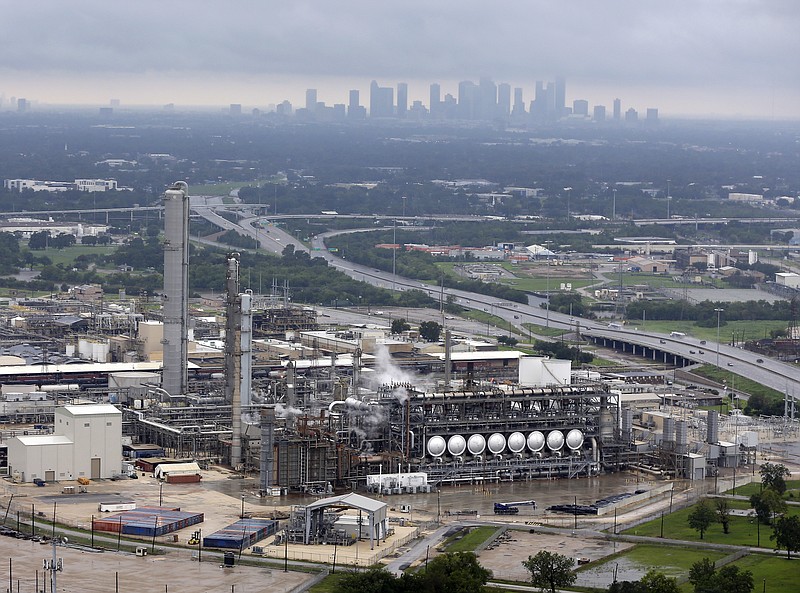Just in time for Labor Day weekend, U.S. gas prices have surged to their highest level all year after tropical storm Harvey knocked out 25 percent of U.S. oil refinery capacity and flows are lower in The Colonial Pipeline, the main gasoline source for Tennessee and such major cities as Atlanta, Washington, D.C., and New York.
The U.S. average for a gallon of regular gasoline was $2.45 Thursday, 10 cents above $2.35 a week before, AAA reported.
Tennessee's average was up 12 cents, according to AAA, while Georgia had gone up 17 cents and Alabama increased by 19 cents.
"Consumers will see a short-term spike in the coming weeks with gas prices likely topping $2.50 per gallon, but quickly dropping by mid to late September," said Jeanette Casselano, AAA spokeswoman. "AAA does not expect refineries to be offline for months, as early reports indicate minimal to no significant damage to Corpus Christi and Houston refineries."
The last time the national gas price average was $2.50 was two years ago in August 2015.
U.S. gas prices could go up 20 to 40 percent a gallon before it's all said and done, predicts Patrick DeHaan, senior petroleum analyst at Gasbuddy.com.
"It's probably one of the most dire situations in terms of gasoline that we've seen," DeHaan said. "I don't think you could get much worse than this."
Colonial Pipeline Co. announced Thursday that it wasn't able to move any fuel products from Texas refineries in its Colonial Pipeline, a 5,500-mile-long system that delivers some 2.6 million barrels of gasoline, diesel and jet fuel to 11 states from Houston to New York - including a spur pipeline that feeds Chattanooga, Nashville and Knoxville.
But gasoline continued to flow in the pipeline from Lake Charles, La., and refineries to the east, Colonial said
"The pipeline - even if Houston refineries are not adding to it - there's still gasoline in that pipeline," DeHaan said.
Colonial predicted its pipeline would be able on Sunday to return to service from Houston.
At full tilt, Colonial Pipeline's mainline has a capacity for 2.5 million barrels a day. Eastern Tennessee also is served by Plantation Pipeline, which can carry 700,000 barrels a day of gasoline, jet fuel, diesel and biodiesel from Baton Rouge, La., to Washington, D.C., and has a spur that runs through Chattanooga.
To help alleviate concerns about fuel supply shortages, the Environmental Protection Agency issued a waiver for low-volatility conventional gasoline and reformulated gasoline in 12 states: Alabama, Florida, Georgia, Kentucky, Maryland, Mississippi, North Carolina, South Carolina, Tennessee, Virginia, Texas, Louisiana and the District of Columbia. With the waiver, retailers in the states covered by the waiver are allowed to sell "winter blend" gasoline early.
Additionally, the U.S. Department of Energy released 500,000 barrels of oil from the U.S. Strategic Petroleum Reserve - crude oil that the federal government stores in huge underground salt caverns along the coastline of the Gulf of Mexico.
The oil will be delivered via pipeline to the Phillips 66 refinery in Westlake, La.
According to DOE, it will continue to review incoming requests for oil in the reserve, meaning that it could release more if deemed necessary.
Contact staff writer Tim Omarzu at tomarzu@timesfreepress.com or www.facebook.com/MeetsForBusiness or on Twitter @meetforbusiness or 423-757-6651.

